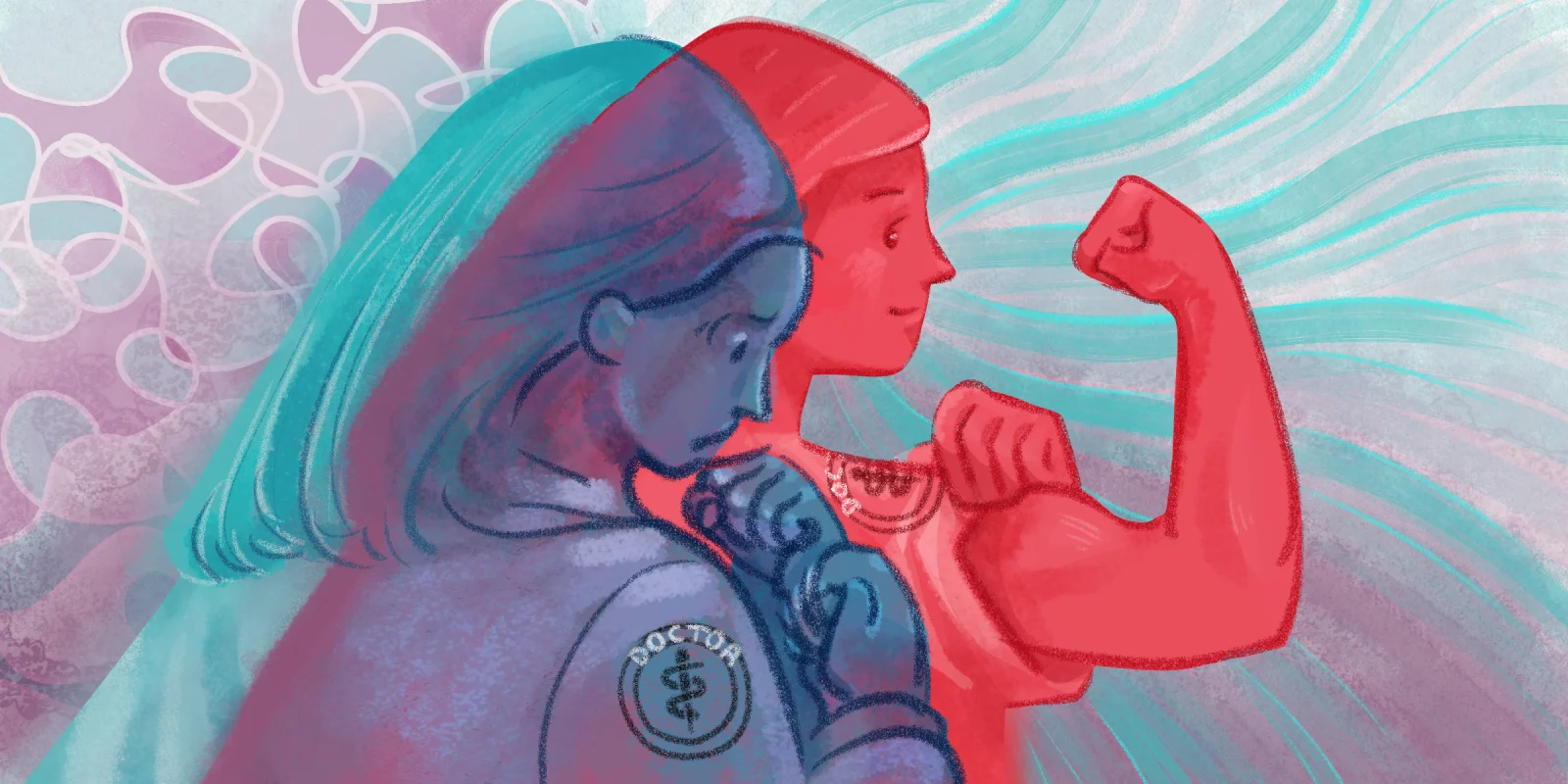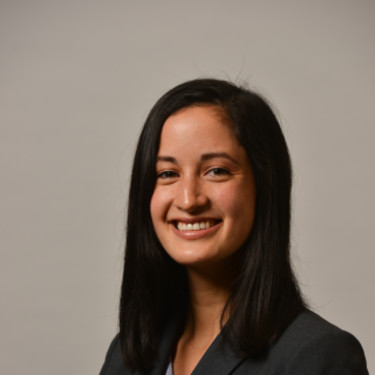I stood there, just like everybody else.
It was my fourth year of medical school. I had just matched into internal medicine, was two weeks from graduation, was already stitching the title “Doctor” onto my clothing, and I just stood there.
Seconds before, I sensed the panic of people huddled around the front of the pickup truck. Someone had been hit – I knew that much. I jumped from our car, which was still rolling to a stop, and instructed my husband to call 911 and direct traffic. I pushed myself to the center of the circle. I was not prepared for what I’d see and was even less prepared for what to do for the man who lay face down on the ground, surrounded by a pool of blood.
I stood there, stunned into inaction at his lifeless face. The scene gradually illuminated in reds and blues: EMS racing to the scene. Within seconds, they were on the ground, initiating CPR, doing what I suddenly realized needed to be done. I stepped away from him, knowing that now his life was in better hands, hands that weren’t mine.
“I’m so stupid. I should have started CPR. Why didn’t I think of that?” I began questioning myself.
“You didn’t know now, but you will next time,” my husband reassured me.
Rather than receiving comfort, the words seeded shame, regret, and fear in the weeks approaching July 1 of my intern year. Seconds make the difference between recovery and brain death, and the gravity of that knowledge hit me in that moment. If my seconds of hesitation could have changed the outcome of the man in front of me, I feared how all my future patients would suffer from my other shortcomings and mistakes. How could I possibly be a successful doctor if I couldn’t even help a bystander? How many other people would suffer until I didn’t have to be better “next time”?
As I approached the start of residency, I began to worry the July effect was real – you know, that myth that hospital outcomes worsen when medical students start residency, and residents start as attendings. It’s a longstanding cynical joke about the chaos of an evolving workforce and the trainees who all strive to do our best to be perfect for our patients. The myth propagates even though no evidence supports its existence, and in fact studies show that there is minimal to no change in outcomes during July.
Still, I felt so lost on July 1, fearful even as I placed my first order to replete mild potassium deficiency. Those initial days and weeks were grueling, but I survived, as did my patients. I maintained my fear of making devastating mistakes, but with the demands of intern year, I quickly learned that there was no benefit to worrying about all the next times. I could only focus on the patient in front of me and do my best for them. By the end of the year, I found myself directing care in rapid responses and taking leadership in codes. Even as I progressed, I breathed a sigh of relief every time my senior or attending would walk in to assist me. While it could be my first time in any specific situation, my patients and I would not have to wait until “next time” for me to be better, I could learn in the moment from the experience of my teachers. Of course, there were times when our medical efforts were exhausted, and there could be no next time for our patient to improve. In these times, when even the best medicine could not prevent death, we could still help them in their suffering by holding their hands as they passed, expressing our sympathies for them and their families, and listening to stories of the people they once were. Our ability to help the patient in front of us would not have to wait until next time.
Slowly but surely, the end of intern year arrived, and I was excited to finally graduate to the role of senior resident. After my first day of PGY-2, I walked with my husband, recounting my realizations of personal growth, when things truly came full circle. As we neared our apartment, a woman in her car stopped so we could cross the street, and I noticed the car behind her continuing at full speed. It then crashed into the back of her car. Only feet from the scene, we were lucky to be safe, but the cars were badly damaged, and I knew what I needed to do. I told my husband to call 911 and direct traffic as I walked to assess the woman and her passenger. I opened the side door and began my assessment of the two panicked passengers. “My name is Teresa,” I said reassuringly. “I am a doctor, and I am here to help you.” This time, I knew I could.
What was the last thing you learned to help a "next time" patient? Share in the comments.
Dr. Teresa Samson is a second-year internal medicine resident in San Antonio, TX. In her spare time, you'll find her sitting in the sunny corners of the hospital, FaceTiming with her family, and enjoying any excuse to be outdoors. You can follow her journey on Instagram at @residentdoctor_t. Dr. Samson is a 2023–2024 Doximity Op-Med Fellow.
Illustration by April Brust







